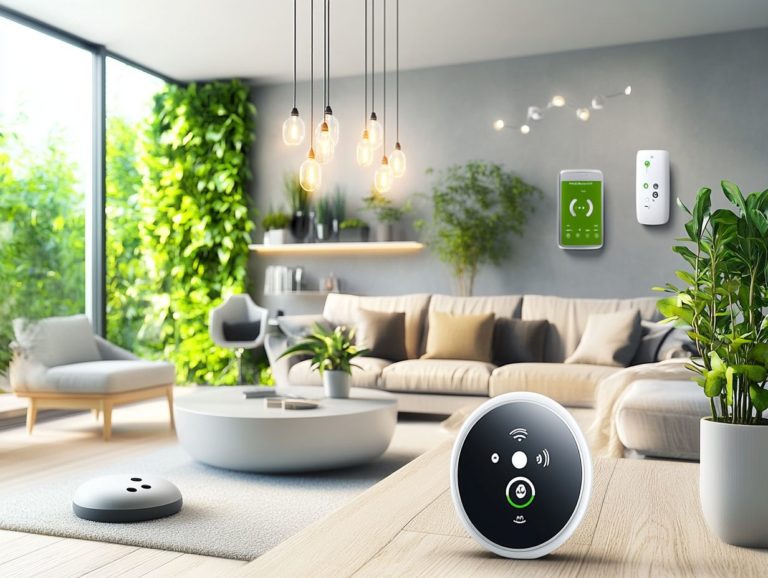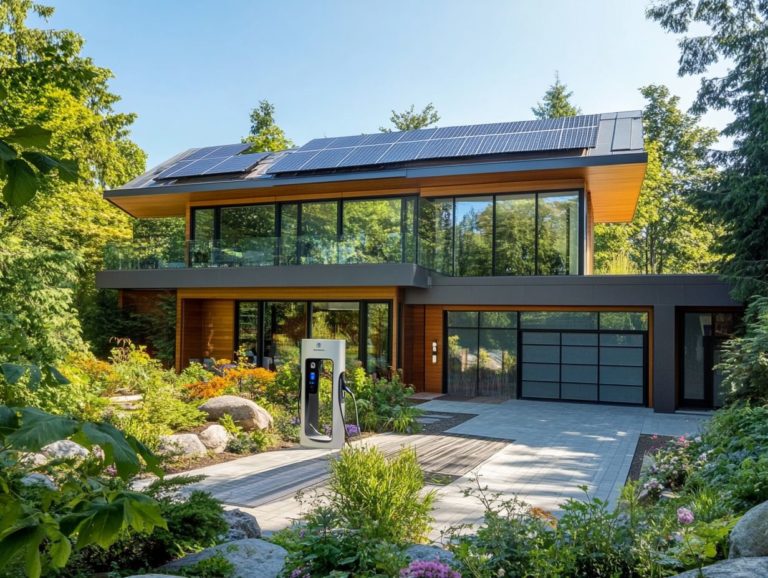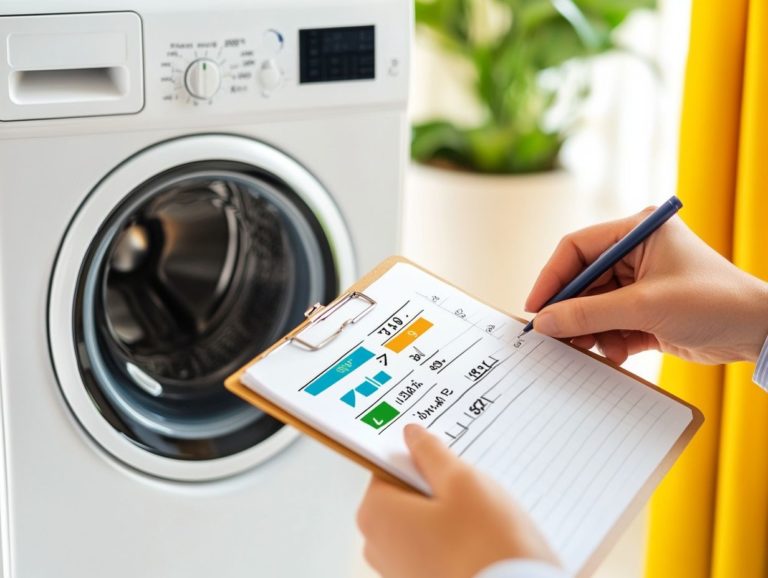Understanding the Costs of Energy-Efficient Appliances
Energy-efficient appliances go beyond modern convenience; they are smart investments for your home and the planet.
This article explores the many benefits of these appliances. It highlights their potential for significant cost savings and a positive environmental impact. You will learn about the factors that influence initial costs compared to long-term savings and the ratings that show how well an appliance uses energy.
Whether you re considering an upgrade or looking to maximize your savings, this article provides practical insights to help you choose the best options for your household needs.
Contents
- Key Takeaways:
- Benefits of Using Energy-Efficient Appliances
- Factors Affecting the Cost of Energy-Efficient Appliances
- Calculating the Cost of Energy-Efficient Appliances
- Tips for Choosing the Right Energy-Efficient Appliance
- Maximizing the Cost Savings of Energy-Efficient Appliances
- Frequently Asked Questions
- What are energy-efficient appliances and why are they important?
- How much do energy-efficient appliances cost compared to traditional appliances?
- Do energy-efficient appliances really save money in the long run?
- Can I qualify for any rebates or incentives when purchasing energy-efficient appliances?
- Are there any costs with energy-efficient appliances?
- What tips can help understand the costs of energy-efficient appliances?
Key Takeaways:
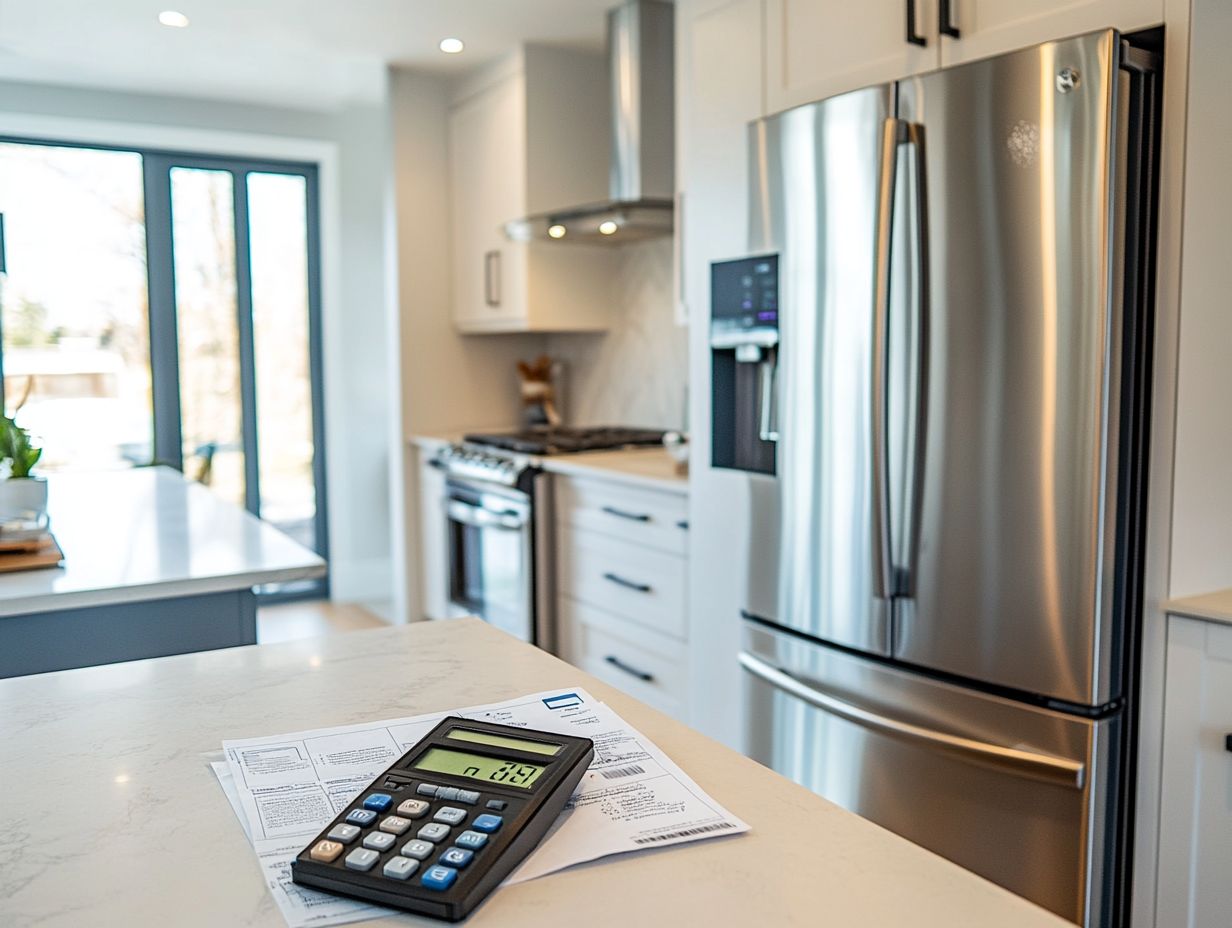
Energy-efficient appliances save money in the long run and positively impact the environment. Initial cost should not be the only factor when purchasing these appliances; consider long-term savings as well. Understanding energy ratings and selecting the right appliance can help maximize your cost savings.
What are Energy-Efficient Appliances?
Energy-efficient appliances are designed to cut down on energy consumption while delivering excellent performance. They are essential for any modern household looking to reduce utility bills and contribute to environmental stewardship.
From refrigerators to washing machines and smart thermostats, these appliances are certified by reputable programs like Energy Star, endorsed by the U.S. Environmental Protection Agency and the Department of Energy.
By choosing energy-efficient technology, you can enjoy substantial savings on energy costs. This choice also enhances your home improvement projects and supports energy equity initiatives.
For example, new refrigerators use advanced insulation and energy-saving compressors. They keep your food fresh while consuming much less electricity than older models.
High-efficiency washing machines use less water and energy per load, resulting in lower utility bills and a smaller environmental footprint.
Dishwashers now feature soil sensors that adjust water usage based on load cleanliness, optimizing every cycle for efficiency. Smart thermostats learn your preferences, regulating heating and cooling throughout the day to maximize savings.
With Energy Star certification, you can trust that these appliances meet strict energy efficiency standards, ensuring they function with a reduced environmental impact.
Benefits of Using Energy-Efficient Appliances
You ll be amazed at the many benefits energy-efficient appliances can bring to your home! They offer financial savings and contribute positively to the environment.
Integrating these products can significantly reduce energy consumption, leading to lower utility bills. Over time, this translates into reduced expenses.
These appliances are designed to optimize energy performance while minimizing your carbon footprint. Homeowners can also enjoy tax incentives, enhancing the financial appeal of these eco-friendly choices.
Cost Savings and Environmental Impact
Cost savings and environmental impact are vital factors in the benefits of energy-efficient appliances. By adopting these advanced models, you can significantly lower energy consumption and influence your utility bills.
Switching to energy-efficient products not only leads to economic savings but also plays a crucial role in protecting the environment. These appliances help minimize greenhouse gas emissions and conserve essential resources.
Think about it: a new energy-efficient refrigerator might save you around $200 over its lifetime due to innovations in insulation and compressor technology.
Switching to energy-efficient lighting, like LED bulbs, can cut energy use by up to 75%, translating into around $225 saved over each bulb’s life.
A study from the U.S. Department of Energy reveals that if every American household replaced just one light bulb with an energy-efficient option, it could prevent greenhouse gas emissions equivalent to nearly 800,000 cars.
These examples illustrate how energy-efficient appliances lighten your household’s financial load while significantly contributing to a healthier planet.
Explore your options for energy-efficient appliances today and start saving while helping the planet!
Factors Affecting the Cost of Energy-Efficient Appliances
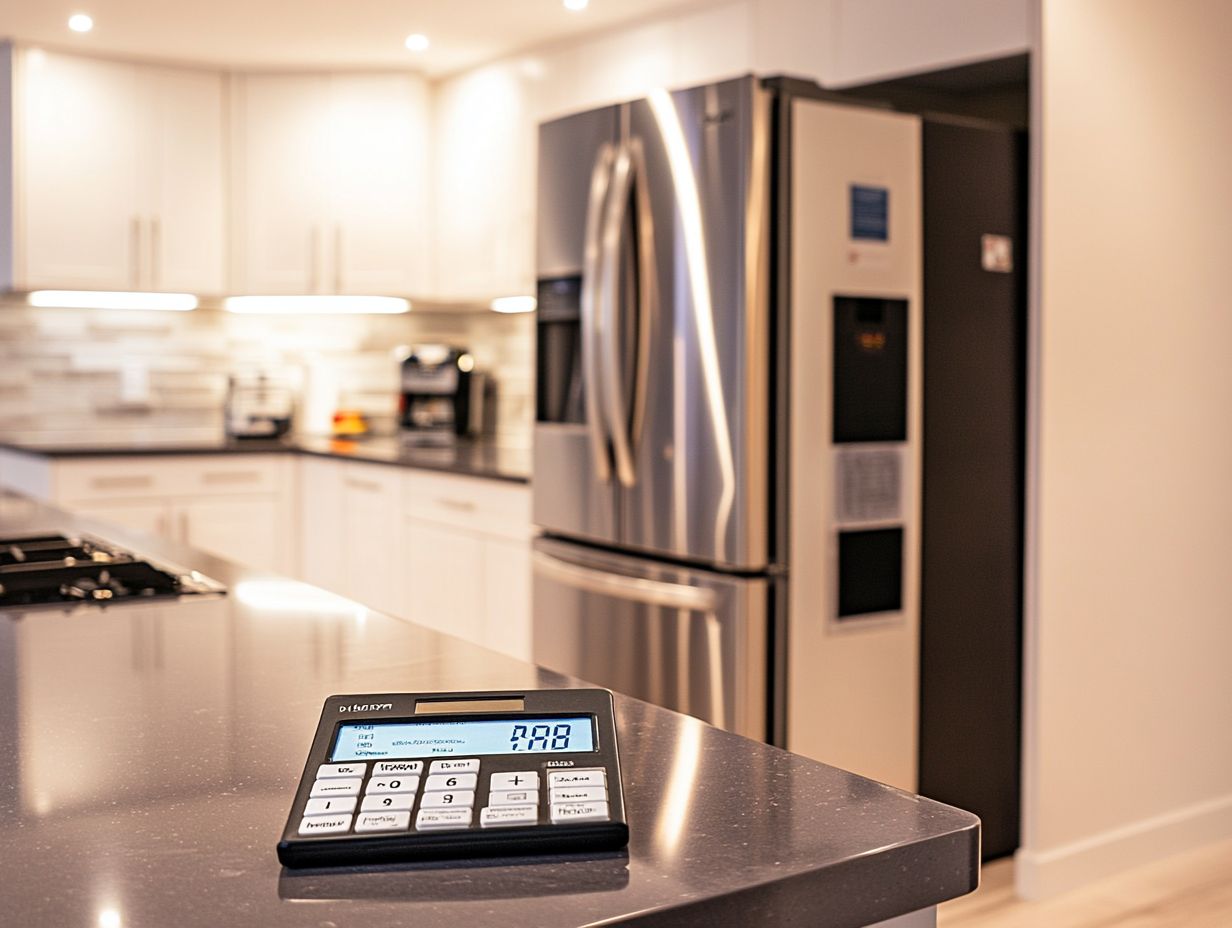
Act now to understand the factors that affect the cost of energy-efficient appliances! Your smart choices today can lead to big savings tomorrow.
Several factors shape the cost of energy-efficient appliances. It is crucial for you to evaluate your initial investment against the potential long-term savings.
Upfront costs can fluctuate based on the type, brand, and features, particularly those advanced energy-efficient technologies that boost performance. Fortunately, numerous rebate programs and tax incentives can help lighten this financial burden.
You can also conduct energy audits to assess overall energy consumption and pinpoint areas ripe for improvement.
Initial Cost vs. Long-Term Savings
When you re evaluating energy-efficient appliances, grasping the balance between initial cost and long-term savings is crucial. These appliances might demand a higher upfront investment, but the long-term savings on energy bills can be quite impressive.
This ultimately leads to lower utility costs over time. Explore savings strategies that highlight the durability and longevity of these products.
Investing in quality can yield notable financial returns. For example, consider an energy-efficient refrigerator priced at $1,500 versus a standard model at $1,000.
The energy-efficient option could save you roughly $200 each year on your energy bills. Over a decade, that adds up to $2,000 in savings, far surpassing the initial price difference.
Keep an eye out for potential rebates and tax incentives that can help offset that higher purchase price. Conducting energy audits will provide valuable insights into which appliances deliver the best long-term savings, enabling you to make the most economically sound choices for your home.
Calculating the Cost of Energy-Efficient Appliances
Calculating the cost of energy-efficient appliances requires a thorough analysis of several key factors, including energy efficiency ratings and operating costs. This detailed look helps you make informed decisions.
By leveraging energy guides, you can gain insights into the expected energy consumption of various appliances. This allows you to anticipate potential energy savings and overall expenses more accurately.
These calculations extend beyond just the initial purchase price; they encompass long-term energy usage and the associated costs throughout the appliance’s lifespan.
Understanding Energy Efficiency Ratings
Understanding energy efficiency ratings is essential for you to make informed choices about energy-efficient products. These ratings offer valuable insights into expected performance and operating costs.
When you see an appliance with the Energy Star certification, it means it meets the stringent energy efficiency standards established by the US Environmental Protection Agency. This makes it easy for you to identify products that will consume less energy and help lower your utility bills.
By familiarizing yourself with energy guides, you can further grasp how these ratings translate into real-world savings and energy usage. Essentially, these efficiency ratings enable you to compare different appliances based on their estimated annual energy consumption.
This helps you pinpoint which models not only perform better but also save you money over time. When evaluating products, look for the EnergyGuide label, which provides vital information such as estimated yearly operating costs.
This label is a useful tool for you to assess potential long-term savings. Choose certified products to cut your carbon footprint and enjoy significant savings. It’s a win-win!
Tips for Choosing the Right Energy-Efficient Appliance
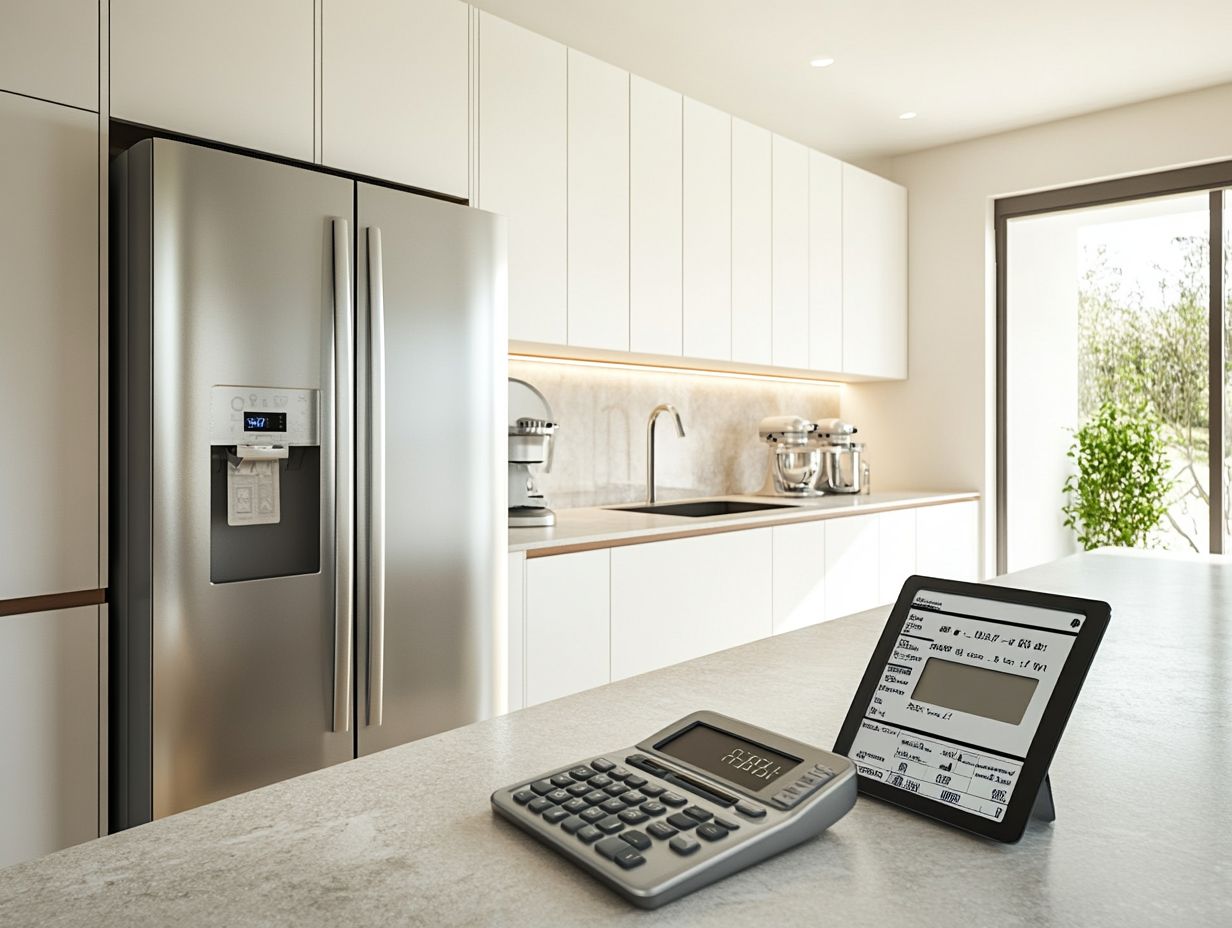
Choosing the perfect energy-efficient appliance demands thoughtful consideration of numerous factors tailored to your unique household needs and the advanced energy-efficient technologies at your disposal.
You should evaluate your energy consumption habits, budgetary limits, and specific appliance categories. This ensures that your selections not only complement your lifestyle but also maximize energy savings.
Moreover, leveraging smart savings tips will enable you to make informed and responsible choices that yield lasting benefits in both cost and efficiency.
Considerations for Your Household Needs
When selecting energy-efficient appliances, consider your household needs. This ensures the products you choose align with your energy consumption patterns and lifestyle.
Factors like family size, cooking habits, and how often you use different appliances play a significant role in determining which options are most suitable for your home.
By integrating additional solutions such as smart power strips, you can further enhance energy efficiency, making your informed choices even more impactful.
For example, if you have a larger family, investing in a high-capacity washing machine can be a game-changer. It allows you to handle bigger loads and cut down the number of cycles each week.
Conversely, if you frequently entertain guests, a dual-zone refrigerator could prove invaluable for keeping perishables at their optimal temperatures. By understanding your individual usage patterns, you can tailor your selections to get the most out of your appliances.
Using smart power strips is a smart move, effectively minimizing phantom energy consumption from devices left on standby. This complements the benefits of energy-efficient appliances and can help you save even more on your monthly utility bills.
Maximizing the Cost Savings of Energy-Efficient Appliances
Maximizing the cost savings from energy-efficient appliances requires practical strategies that enhance energy savings and reduce energy costs.
By embracing energy-saving tips such as proper usage, regular maintenance, and the integration of smart technologies you can optimize your appliances performance and extend their lifespan.
Furthermore, being mindful of peak energy usage hours allows you to minimize your overall consumption, resulting in even greater savings on your utility bills.
Practical Ways to Save on Energy Costs
Implementing practical strategies to save on energy costs can significantly boost the financial benefits of using energy-efficient appliances in your home.
Conducting energy audits allows you to pinpoint areas of energy loss, enabling you to enhance insulation and sealing. This proactive approach boosts your energy savings and helps create a sustainable living space!
Regularly checking for drafts around your windows and doors is crucial. Even the smallest gaps can lead to considerable energy waste. By sealing these leaks with weatherstripping or caulk, you can further diminish your heating and cooling expenses.
Embracing energy-efficient practices like switching to LED lighting and utilizing smart thermostats can lead to substantial long-term savings as well. Each of these strategies enhances comfort while significantly lowering your monthly utility bills, making these efforts well worth it if you’re looking to elevate your home s energy efficiency.
Frequently Asked Questions
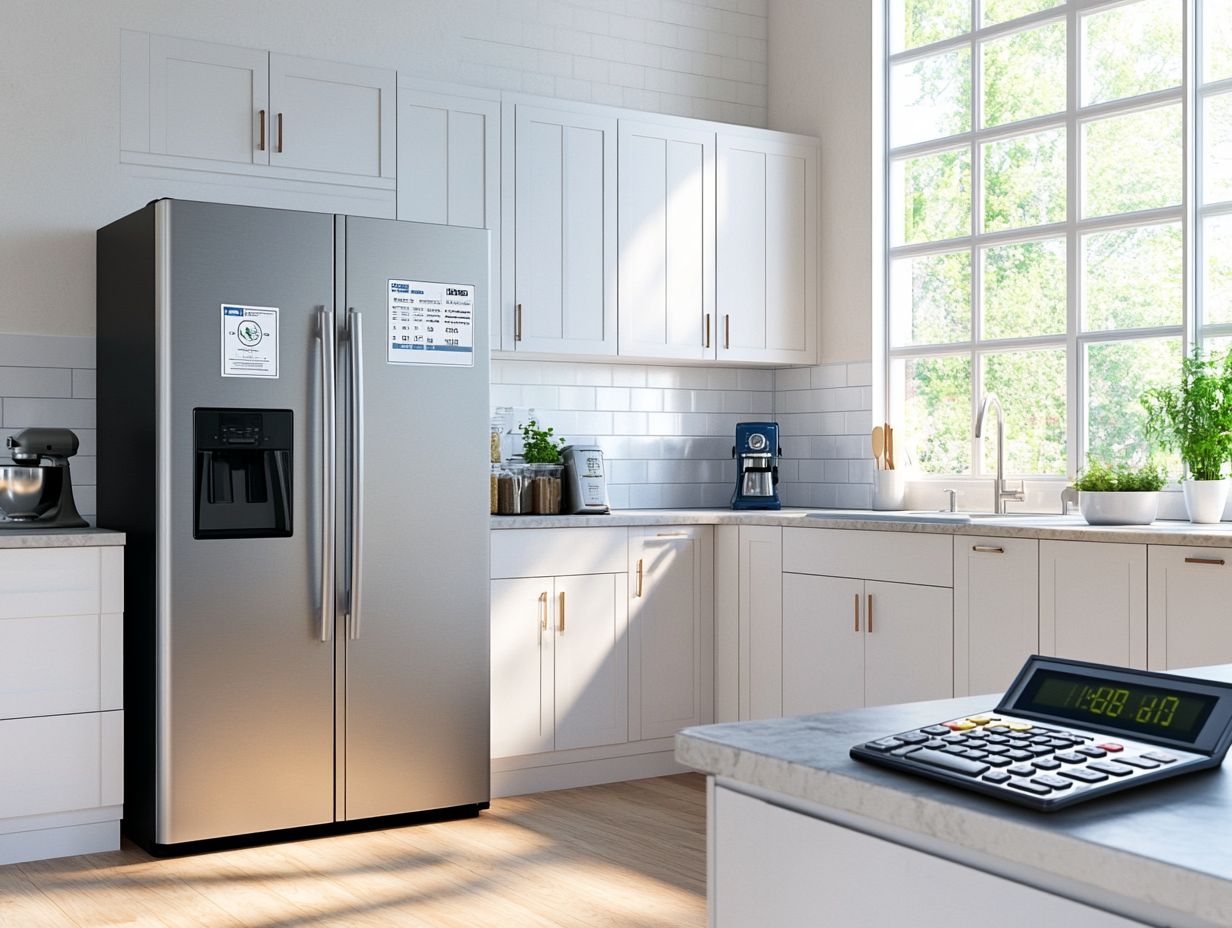
What are energy-efficient appliances and why are they important?
Energy-efficient appliances are designed to use less energy and save you money on your utility bills. They are important because they help reduce energy consumption and contribute to a more sustainable environment.
How much do energy-efficient appliances cost compared to traditional appliances?
The cost of energy-efficient appliances can vary depending on the brand, model, and features. However, they may cost more upfront than traditional appliances. It’s important to note that the cost difference may be offset by long-term energy savings.
Do energy-efficient appliances really save money in the long run?
Yes, energy-efficient appliances can save you money in the long run. Although they may have a higher upfront cost, they use less energy and can significantly reduce your utility bills over time. This means that the savings will eventually cover the initial cost and provide you with long-term savings.
Can I qualify for any rebates or incentives when purchasing energy-efficient appliances?
Yes, many government agencies and energy companies offer rebates and incentives for purchasing energy-efficient appliances. Some of these programs may also provide tax credits or discounts on your utility bills. It’s worth checking with your local government or utility company to see if you qualify for any of these programs.
Are there any costs with energy-efficient appliances?
Generally, owning energy-efficient appliances doesn t come with extra costs. However, you need to maintain them properly for long-lasting efficiency.
What tips can help understand the costs of energy-efficient appliances?
Research and compare different models before making a choice. Look at long-term savings, check for rebates, and review energy efficiency ratings to guide your decision.


